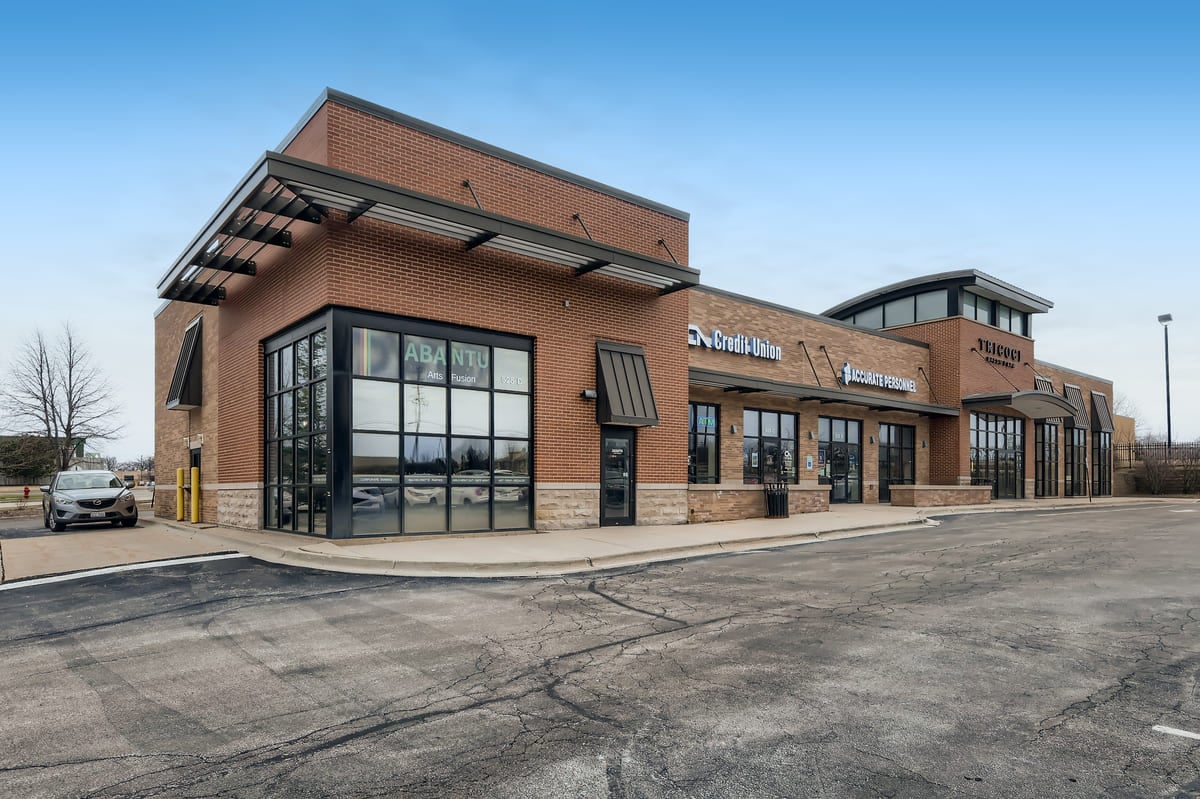
When it comes to commercial real estate (CRE) investment, thorough research is critical. From selecting the right property type to structuring deals, the process can be complex, involving legal, financial, and economic considerations.
At Brian Properties, we specialize in navigating Chicago’s suburban commercial real estate market, helping investors uncover high-value opportunities while mitigating risks. Whether you’re looking for industrial, office, multifamily, or retail investments, understanding the key factors that drive success is essential.
Here are ten critical considerations when investing in commercial properties, plus insights into how experienced property managers can help you identify and maximize lucrative deals.
1. Choosing the Right Property Type
Unlike residential real estate, where comparable sales (comps) help determine value, commercial properties derive value from the success of their tenants and local market conditions. In Chicago’s suburban CRE market, the following property types offer unique opportunities:
- Industrial – High demand for logistics and warehousing, particularly near O’Hare Airport, Elk Grove Village, and Bolingbrook.
- Multifamily – Strong rental demand in suburban hubs like Naperville, Oak Brook, and Evanston, with rising interest in transit-oriented developments (TODs).
- Retail – Grocery-anchored shopping centers and mixed-use developments continue to perform well, while big-box retail faces challenges.
- Office – Class A suburban office spaces with modern amenities attract tenants, while outdated office parks face conversion to mixed-use or industrial space.
- Mixed-Use – Popular in suburban downtowns (Arlington Heights, Wheaton, Palatine) as developers integrate residential, office, and retail components.
➡ Learn more about how Brian Properties helps investors navigate different property types:
Explore Our Services
2. Budget and Financing
CRE investments require substantial capital, often with long-term commitments. Investors should evaluate:
- Cash flow projections and liquidity
- Financing options (traditional loans, private equity, syndications, or REITs)
- Hidden costs (property taxes, maintenance, tenant improvements)
With high interest rates and evolving market conditions, strategic financial planning is crucial to ensure long-term profitability.
➡ Considering a new investment? See how our brokerage team can help structure the right deal for you:
View Brokerage Services
3. Location: Understanding Chicagoland’s Submarkets
Beyond just geographic placement, choosing the right submarket is key. In Chicago’s suburbs, investors should analyze:
- Demographics & income levels – Areas like Naperville, Glenview, and Hinsdale offer strong tenant bases.
- Job market & migration patterns – Corporate relocations to Oak Brook and Schaumburg boost office and retail demand.
- Infrastructure & accessibility – Proximity to Metra stations, highways (I-90, I-294), and O’Hare Airport increases property value.
While Chicago’s central business district (CBD) has seen slower office recovery, suburban markets remain attractive for investment.
➡ For detailed market insights and investment strategies, visit our Learning Center:
Read More in Our Learning Center
4. Defining Your Investment Strategy
A clear investment strategy helps define success:
- Cash Flow Focus – Multifamily and industrial properties offer steady rental income.
- Value-Add & Appreciation – Office-to-residential conversions and mixed-use redevelopment present lucrative opportunities.
- Long-Term Holding vs. Quick Flip – Consider market trends and property repositioning potential before committing to a strategy.
5. Accurate Property Valuation & Market Timing
Chicago’s CRE market is dynamic. To ensure a smart investment, analyze:
- Historical price trends & future projections
- Vacancy rates & tenant stability (especially in office & retail)
- Macroeconomic factors like inflation & interest rates
Example: While the industrial sector remains strong, older suburban office buildings are seeing price corrections, creating opportunities for repositioning.
➡ Stay ahead of market trends with our latest reports and analysis:
View Market Reports
6. Calculating Projected ROI
Evaluating potential returns requires a deep understanding of:
- Rental rates & occupancy levels (High for industrial, mixed for office)
- Appreciation potential (Emerging suburban markets like Downers Grove and Orland Park are gaining traction)
- Value-add opportunities (Upgrading properties to attract higher-paying tenants)
7. Property Condition & Development Potential
Before purchasing, assess:
- Building age & infrastructure – Older office buildings may require conversion or major upgrades.
- Zoning & land use regulations – Chicago suburbs are increasingly adapting zoning laws to allow for mixed-use developments.
- Environmental concerns – Industrial properties near O’Hare and Joliet may require environmental assessments.
As part of the purchasing decision, the right commercial real estate partner can help you assess both the property and its leasing potential.
8. Legal & Regulatory Considerations
Understanding local and state regulations is critical. Key factors include:
- Zoning laws – For example, suburbs like Naperville and Schaumburg have zoning restrictions affecting development.
- Tax implications – Property taxes vary widely across Cook, DuPage, and Lake Counties.
- Tenant & leasing laws – Longer lease terms are common in suburban CRE deals, requiring careful contract structuring.
9. Market Cycles & Timing Your Investment
The Chicagoland CRE market is experiencing shifts due to:
- Strong demand for industrial & multifamily
- Slower recovery in office & retail
- Rising interest rates impacting deal flow
Strategic investors are identifying distressed assets and value-add opportunities to maximize returns despite market uncertainties.
10. Partnering with a Professional Property Management Team
Managing commercial properties requires expertise in leasing, tenant relations, maintenance, and financial oversight. A professional commercial property management firm can help:
- Optimize property performance
- Maximize occupancy & rental income
- Handle legal & compliance matters
- Protect your portfolio
Evaluate These 10 Factors Before Investing in Chicagoland CRE
Commercial real estate investing requires in-depth knowledge, market awareness, and strategic planning. Whether you're an experienced investor or new to CRE, Brian Properties offers expert guidance to help you identify, acquire, and manage high-performing properties in Chicago’s suburban market.
📩 Contact us today to explore investment opportunities!
Contact Us
📥 Download our “Ultimate Guide to Investing in Chicagoland Commercial Real Estate” now!
Get the Guide
Similar Posts
Apr
Commercial Property Management Companies: Pros and Cons for Chicago Investors
After investing in commercial real estate, investors have two possible options: self-manage or utilize the services of a commercial property...
Mar
A Beginner’s Guide to Investing in Commercial Properties
Are you interested in investing in real estate but don't know where to start?
The wealth-building potential, equity, and cash flow opportunities are...
Mar
The Benefits of a Chicago Commercial Property Management Company
Once you add up all the time, legal obligations, accounting, compliance, maintenance emergencies (and a lot more), commercial property investing can...


